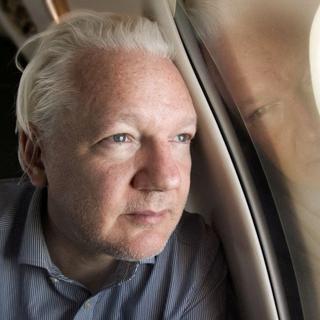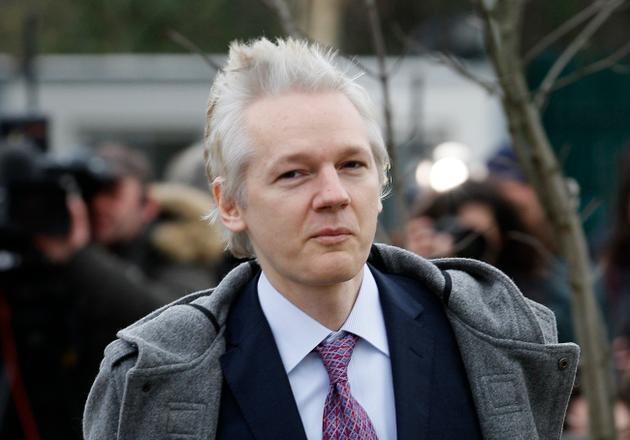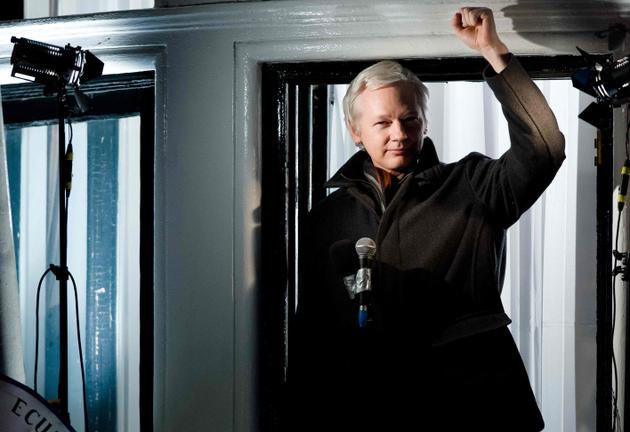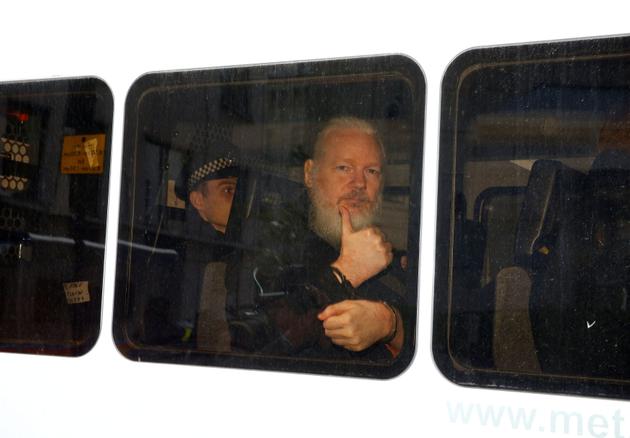


Julian Assange: The timeline of a fierce legal battle
In DepthThe release of the WikiLeaks founder has never seemed so close, following the surprise announcement of a settlement with the US justice system, which could put an end to a long legal ordeal.
Is Julian Assange soon to be released? After five years locked up in a London prison and seven years holed up in London's Ecuadorian embassy, the WikiLeaks founder could become a free man again, on Wednesday, June 26. According to court documents unveiled on Tuesday, the Australian national, prosecuted for espionage by the US, has reached an agreement with the US justice system and is expected, at a hearing scheduled for Tuesday night, to plead guilty and be sentenced to 62 months' imprisonment, which he has already served. It will be the conclusion, perhaps, of a long story of revelations and judicial twists and turns that have kept the world on the edge of its seat.
1971: The birth of a hacker
Assange was born in 1971 in Townsville, in northeast Australia, where he spent a bohemian childhood with his artist mother. A computer enthusiast, he quickly made a name for himself in his late teens in the Australian hacker community. In 1996, he was convicted of a series of hacking offenses, including the penetration of an Australian army network. The judge ruled that the young Assange's intentions were not malicious, but more a matter of "intellectual curiosity."
Like many hackers, Assange is driven by convictions about the free circulation of knowledge, freedom of information and the virtues of transparency. He quickly realized that information technology could facilitate the revelation and availability of troves of documents of public interest. But it can also leave traces of activity and represent a danger for potential whistle-blowers. In 2006, he founded the WikiLeaks website, with the promise of enabling whistle-blowers to transmit documents securely and bring their content to light.
2010: The explosion of WikiLeaks

WikiLeaks began to make a name for itself by publishing a few files, for example on tax evasion in Switzerland. But the big release came in 2010. On April 5, WikiLeaks published a video showing a US attack in Iraq in 2007, targeting and killing a group of people, including two Reuters journalists. The video had a worldwide impact.
This was the first in a vast series of documents that WikiLeaks would publish in the following months, in partnership with several newspapers including The Guardian, The New York Times and Le Monde. They published hundreds of thousands of secret US military documents concerning the wars in Iraq and Afghanistan.
Assange became an international celebrity, charismatic, modern and able to stand up to the US. He became their bête noire, drawing the wrath of then Secretary of State Hillary Clinton in the Obama administration.
At the same time, the US justice system located and arrested Chelsea Manning, the whistleblower who passed on the documents to WikiLeaks. The soldier was sentenced to 35 years in prison (and eventually released in 2017 after a commutation by Barack Obama). Assange, meanwhile, officially escaped prosecution. For the Obama administration, the case was complex: How to attack him without at the same time attacking the New York Times and therefore press freedom?
2012: Holed up in the Ecuadorian embassy in London

The lawsuits would come from elsewhere. In Sweden, at the end of 2010, Assange was accused of sexual assault and rape by two women. The country issued an international arrest warrant to question him. While in the UK, Assange proclaimed his innocence, insisting that the accusations were merely a pretext to have him extradited to the US. On several occasions, he contested the warrant with the British justice system, which systematically refused.
On June 19, 2012, Assange hunkered down in the Ecuadorian embassy in London, which granted him asylum. At the time, the country was governed by Rafael Correa, who was openly hostile to the US. British police could not enter.
For seven years, the hacker was confined to a small room, from which he never left, except to go out on the balcony, where he made occasional appearances. Relations with embassy staff became strained: They criticized him for unpleasant behavior, while the Australian accused them of spying for the US. His doctors warned of his health, which deteriorated over the years.
Meanwhile, WikiLeaks continued to operate: In 2013, for example, the organization became involved in the runaway of whistleblower Edward Snowden and continued to publish documents – some of which permanently damaged Assange's image.
2016: Publication of Hillary Clinton's campaign e-mails
As the race for the White House reached its climax in 2016, pitting Hillary Clinton against Donald Trump, WikiLeaks published numerous internal Democratic Party emails that would damage the former secretary of state's campaign. According to the candidate's team, the documents were transmitted by hackers close to the Kremlin.
These publications marked a turning point in Assange's public image. Although he insisted that he was not pro-Trump, the initiative actually favored the Republican candidate, who in fact declared at a rally: "I love WikiLeaks!" Assange's detractors accused him of having acted out of personal vengeance against Clinton and of falling in line with the Kremlin's agenda. Assange had also earlier lost some support by releasing masses of documents via WikiLeaks, unfiltered and without partnership with major media outlets, some of which had put people in danger.
2019: London arrest

To everyone's surprise, Ecuador ended its protection of Assange on April 11, 2019. The new president, Lenin Moreno, no longer wanted to deal with Assange any longer, whose "disrespectful and aggressive conduct" he denounced. The whistleblower was arrested by British police. The images went around the world: Assange was dragged by the police out of the embassy, unrecognizable, emaciated, and hirsute, before being put into a van and sent to prison.
Assange was not arrested because of the Swedish arrest warrant – the rape investigation could not go ahead and was dropped – but for the violation of his bail conditions. When he locked himself in the embassy in 2012, he evaded judicial supervision, ordered by the British justice system as part of the extradition procedure to Sweden.
But what Assange feared was happening. The US made public several criminal charges, the most serious of which was espionage, and demanded his extradition. Then followed a long series of hearings, during which the British justice system had to decide whether the facts were sufficiently serious and credible to justify Assange's extradition and whether it would not represent a danger to his health. After an initial refusal to extradite Assange on medical grounds in January 2021, the British courts gave the green light, confirming the decision through a series of appeals.
Meanwhile, several newspapers that collaborated with WikiLeaks, including The New York Times, The Guardian and Le Monde, called in an open letter for the Biden administration to halt the prosecution, which they said represented a "dangerous precedent" for the freedom of information.
2024: Freedom closer than ever

While an umpteenth hearing was due to be held on July 9 on the question of Assange's extradition to the US, court documents unveiled on Tuesday, June 25, revealed that an agreement had eventually been reached with the US justice system. According to these documents, Assange is expected to plead guilty at a hearing scheduled for Wednesday morning in a court in the Mariana Islands, a US territory in the Pacific.
He looks set to be sentenced to 62 months' imprisonment, which he has already served, and will be able to return to Australia, free. This could be the last round of a long legal battle between the Australian hacker and the world's leading power.
